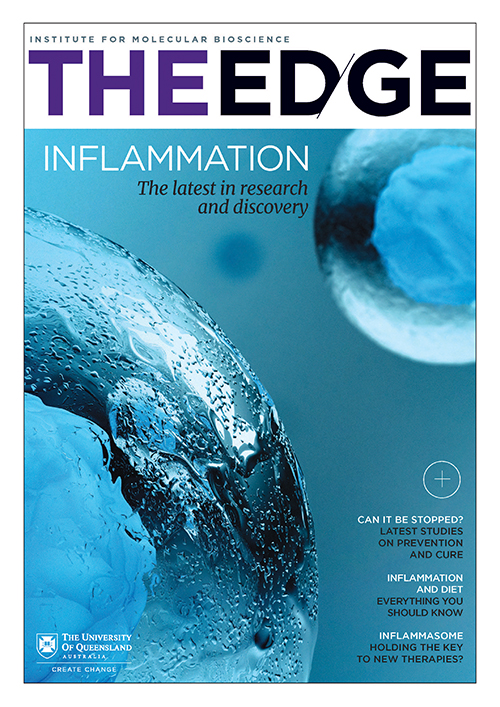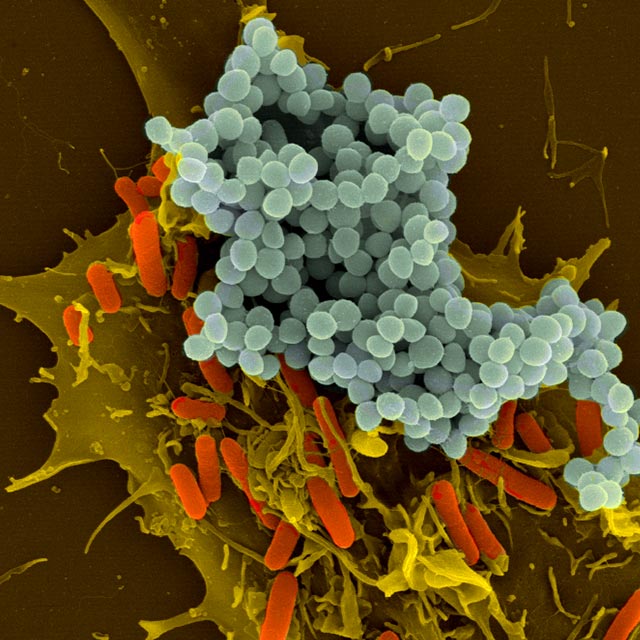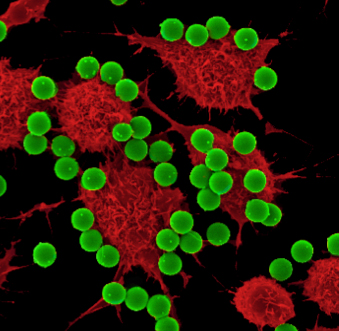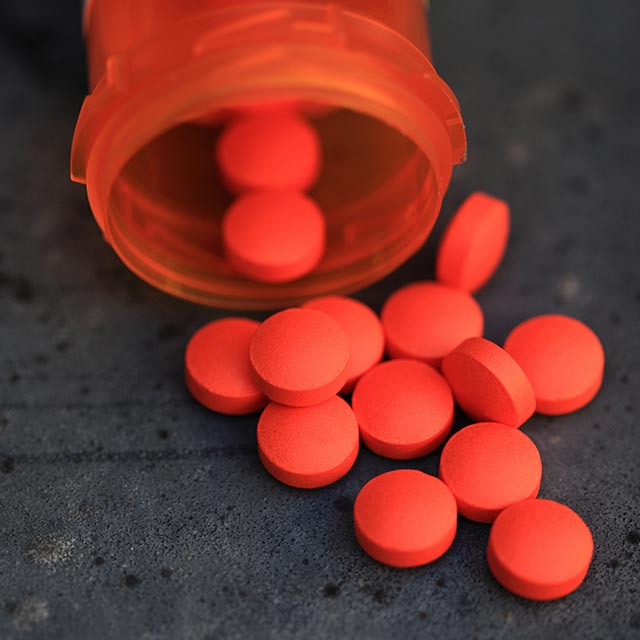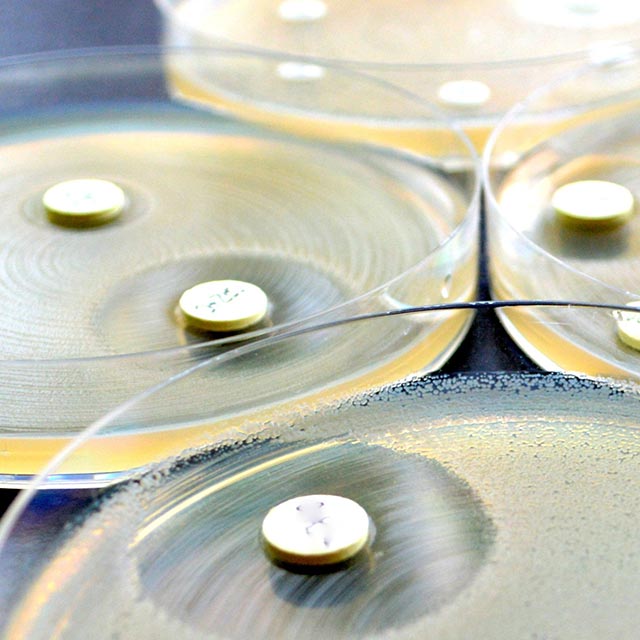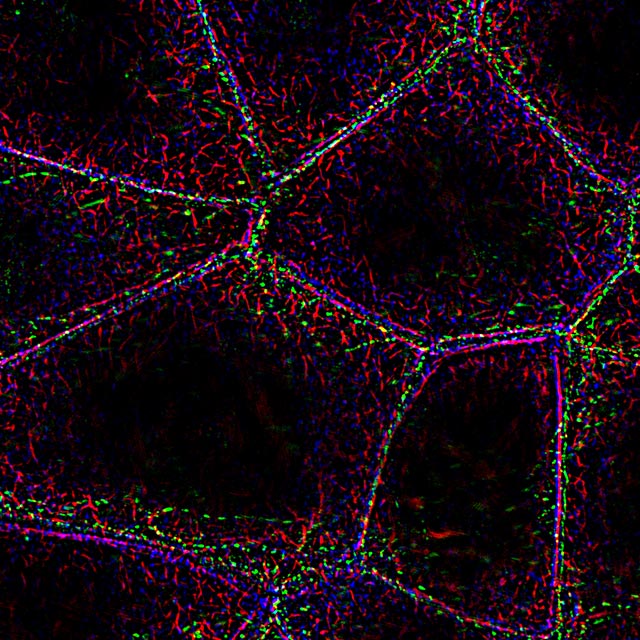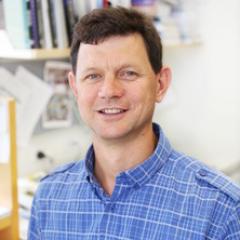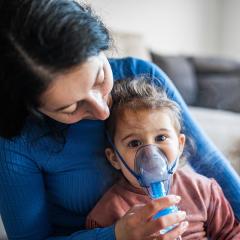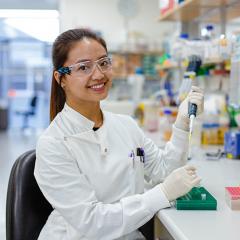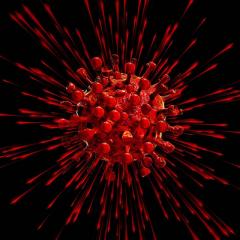The innate immune system has a central role in inflammation-driven diseases.
When it identifies danger, for example an injury or a pathogen, innate immunity triggers a chain of events to restore homeostasis. This response is called inflammation. Inflammation is essential for eliminating agents that may cause harm and for healing, but if uncontrolled, it can cause enormous damage. In fact, inflammation is a key driver of most diseases. It is a system of incredible influence. Researchers at the Centre for Inflammation and Disease Research (CIDR) are developing a detailed understanding of how this process works, so they can devise strategies to control it. If they can block or reduce inflammation when it is unchecked, they may be able to develop new approaches to tackle many important and common diseases.
The ultimate goal of CIDR is to develop new biomarkers and therapies, so that we can identify, prevent and/or treat the underlying causes of many inflammation-related diseases. These include inflammatory bowel diseases, fatty liver disease, sepsis, arthritis, asthma, cancer, obesity-related conditions such as type 2 diabetes, cardiovascular diseases, and neurodegenerative diseases like Alzheimer’s and Parkinson’s disease.
Contact
General information and enquiries
Email: inflammation@imb.uq.edu.au
Research enquiries
Professor Kate Schroder
Director, IMB Centre for Inflammation and Disease Research
Email: k.schroder@imb.uq.edu.au
Phone: +61 7 334 62058
-
-
Inflammasomes
Schroder Group -
Chemistry and human therapeutics
Fairlie Group -
Protein trafficking and inflammation
Stow Group -
Combinatorial chemistry and molecular design
Smythe Group -
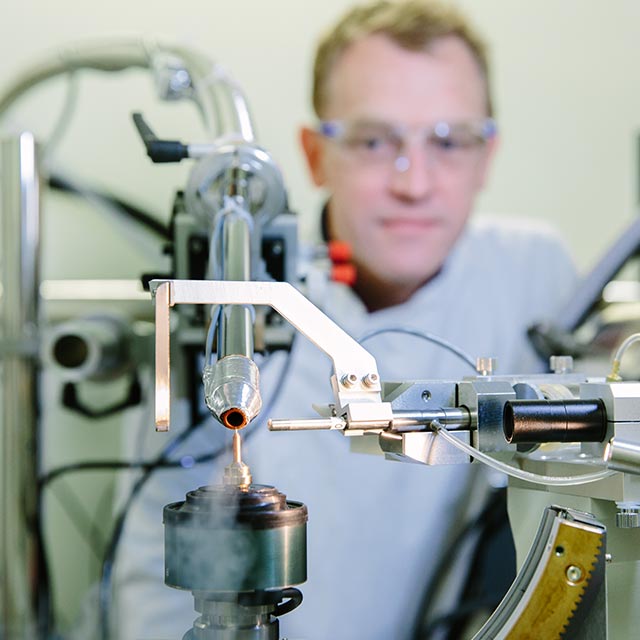
Membrane trafficking at atomic resolution
Collins Group -
Cadherin cell-cell adhesion
Yap Group
Inflammation discovery: New players in pathology
Understanding how inflammation is controlled is the first step in advancing diagnostics and treatments. Researchers are investigating receptors, signalling pathways, intracellular enzymes and secreted proteins involved in inflammation. We aim to confirm the novel genes, proteins and pathways that drive unhealthy inflammation.
Inflammation translation: New drugs to turn inflammation ‘on’ and/or ‘off’
Once we know how inflammation is controlled we can identify potential drug targets and therapies, or repurpose existing drugs, to treat chronic inflammatory diseases. These include some diseases that were not previously considered to have an inflammatory origin.
We aim to develop new chemical entities with novel anti-inflammatory drug profiles. These may ultimately lead to new treatments for inflammation-related diseases.
Tackling chronic liver disease: New therapies are urgently needed
Chronic liver disease is an inflammatory disease that affects up to 30% of the population. Its major causes are viral hepatitis, alcohol and non-alcoholic fatty liver disease. In chronic liver disease, cell damage and inflammation drive liver fibrosis, which can progress to cirrhosis, liver cancer and other complications.
Currently, there are no approved therapies for chronic liver disease-associated liver fibrosis. We are collaborating with clinicians, scientists and industry to identify new candidate targets and potential biomarkers for this important disease.
‘Lighting up’ inflammation: New technologies to track inflammation
To enhance detection and monitoring of inflammatory processes in specific organs and accelerate drug development, new fluorescent probes and biosensors are being developed to track the migration and status of inflammatory cells and mediators.
These new technologies will help us to understand pathological processes and inflammatory targets in models of human inflammatory diseases. The aim is to lead to new approaches for diagnosis of inflammation-related diseases.
Thank you to the following individuals and organisations for their generous support.
External and Global collaborators
UQ partners and collaborators
UQ Diamantina Institute
Associate Professor Stuart Kellie
Institute for Molecular Bioscience Adjunct, UQ
IMB Adjunct
NHMRC Research Fellow, School of Chemistry and Molecular Biosciences, Faculty of Science, UQ
Dean, UQ Graduate School, School of Chemistry and Molecular Biosciences, Faculty of Science, UQ
ARC Future Fellow, School of Biomedical Sciences, Faculty of Medicine and Biomedical Sciences, UQ
Senior Lecturer, School of Biomedical Sciences, Faculty of Medicine and Biomedical Sciences, UQ
ARC Future Fellow, School of Chemistry and Molecular Biosciences, Faculty of Science, UQ
IMB Adjunct
NHMRC Research Fellow, School of Chemistry and Molecular Biosciences, Faculty of Science, UQ
NHMRC Principal Research Fellow, School of Chemistry and Molecular Biosciences, Faculty of Science, UQ
Associate Professor Trent Woodruff
ARC Future Fellow, School of Biomedical Sciences, Faculty of Medicine and Biomedical Sciences, UQ
School of Medicine, Translational Research Institute, UQ
School of Biomedical Sciences, UQ
School of Medicine, Translational Research Institute, UQ
Senior Clinical Research Fellow, Child Health Research Centre, Faculty of Medicine and Biomedical School, UQ
External and Global collaborators
Translational Research Institute, Mater Research, Brisbane, Australia
Translational Research Institute, Mater Research, Brisbane, Australia
Translational Research Institute, Mater Research, Brisbane, Australia
Associate Professor Thiruma (Garrie) Arumugam
The University of Melbourne, Australia
Research Department of Oncology, Cancer Institute, Faculty of Medical Sciences
University College London, UK
Yong Loo Lin School of Medicine, National University of Singapore
University of Heidelberg, Germany
Laval University, Quebec, Canada
Chair, Faculty in the Department of Molecular Genetics and Microbiology, University of New Mexico
The Hospital for Sick Children (SickKids), Toronto, Ontario, Canada
Department of Physiology and Pharmacology, University of Calgary, Alberta, Canada
Roslin Institute, University of Edinburgh, UK
QIMR Berghofer Medical Research Institute, Brisbane, Queensland, Australia
Associate Professor Maciej Markiewski
School of Pharmacy, Texas Tech University, Texas, USA
School of Biochemistry and Immunology, Trinity College, Dublin, Ireland
Associate Professor Timothy Ravasi
Biological and Environmental Sciences & Engineering Division, King Abdullah University of Science and Technology, Kingdom of Saudi Arabia
Department of Biochemistry and Molecular Biology, School of Biomedical Sciences, Monash University, Melbourne, Australia
Associate Professor Glen Scholz
Funding partners
ARC Centre of Excellence in Advanced Molecular Imaging
Australian Cancer Research Foundation
National Health and Medical Research Council
The Fonds de recherche du Québec − Santé (Canada)
Joint initiatives
ARC Centre of Excellence in Advanced Molecular Imaging
European Union FP7 Parasitology Consortium (A-PARADISE)
Proteins and glycans in host-pathogen interactions: targets for novel drugs and vaccines
Collaborate with us
If you are an inflammation researcher, clinician, or advocacy or community group interested in collaborating with CIDR, we would love to hear from you.
Please contact IMB’s Centre for Inflammation and Disease Research, Professor Kate Schroder on inflammation@imb.uq.edu.au.
Commercial opportunities
IMB research is managed through The University of Queensland’s commercialisation company, UniQuest.
UniQuest is one of Australia’s leading research commercialisation companies, specialising in global technology transfer and facilitating access for all business sectors to world-class university expertise, intellectual property and facilities.
UniQuest works closely with IMB’s Centre for Inflammation and Disease Research to pursue commercial opportunities with leading pharmaceutical companies, ensuring the centre’s discoveries improve quality of life for all Australians living with pain.
To enquire about commercial opportunities with the centre, please contact Dr Mark Ashton on m.ashton@uniquest.com.au.

